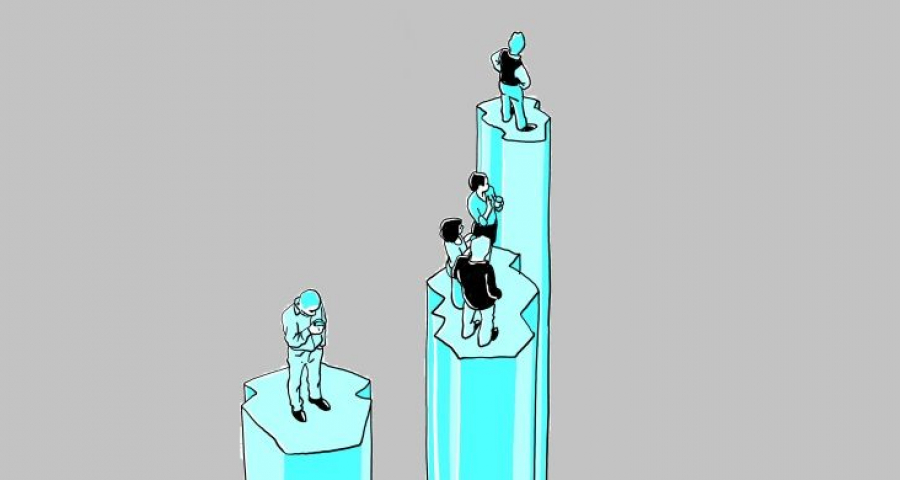We won't realise it straight away, we will start going out together again, of course; but this missing year will leave a gap in the fabric of our relationships.
by Luigino Bruni
published in Messaggero di Sant'Antonio on 18/03/2021
It will take a long time to properly account for the damage caused by this long year 2020, which, despite the rules, seems to be never ending. The easiest accounts to make are the economic ones, those recorded in the accounting books and in the national GDP; much more difficult, however, are the "moral accounts" in the souls of entrepreneurs who have lived this time on the brink of the precipice, and who went to bed without the certainty that their company would make it through to the next day. These accounts are very bad, because we do not have the appropriate currency, because we forget them right away in order to continue living. But, even if we forget them, they remain there, they are tenacious and operate in our lives, surfacing when we least expect it, and everything comes back alive and true as in the moments when they happened.
Among the almost invisible damages of covid - p.s. my corrector keeps turning covid into covi: it still hasn't learned its name after all this human pain -, there are also those done to our relational capital, to our heritage of friendships and human relationships. Beyond the colours of our regions and provinces, we have had to reduce, sometimes eliminate, meetings with our friends and relatives for many months now. Friendship, as we know, is subject to deterioration through disuse and abandonment; like houses, buildings, gardens, rivers, which if we do not look after them lose their value, change their appearance, the surrounding environment takes over, until we no longer see them, do not recognise them. I am not talking about those very few friends who are not subjected to this form of obsolescence. These are there, almost always, but they are few, sometimes very few.
However, our happiness and well-being also depend on those 'normal' friends who are not very close and special, but make our lives richer and more beautiful. Those that we see every now and then, on birthdays or for a drink, friends at five-a-side football, at the card game at the sports bar, those chats between friends where the first pleasure lies precisely in the time wasted, when you forget your watch to simply be together, exchanging souls and words. Or even the car rides with colleagues, where we do not talk about work but about everything else, a non-work part of our life which then makes working more human.
In this year, we have reduced these relationships far, far too much. We got used to spending afternoons and holidays alone or with one or two people, always the same ones. At first we felt bad, we felt the absence of the bodies of our friends; then, as the months passed, we got used to loneliness and a narrow gauge social life, to the point where we almost didn't feel the nostalgia for the missing meetings, for the non-hugs, for those kisses on the cheek that were the first language of friendship. We humans can also get used to our unhappiness.
We don't think about it, the media or television don't talk about it, it is not among the priorities of the recovery plan, no politician makes it one of their priorities. But we will come out of this crisis (if we ever come out of it at all) with a strong devaluation of our relational heritage. We won't realise it straight away, we'll start going out together again, going to each other's houses, sure; but this missing year, like and more than our children's school year, will leave a void, a hole in the fabric of our relationships. Let's not hide it, because only by seeing it will we be able to remember it.
Photo credits: © Giuliano Dinon / MSA Archive








